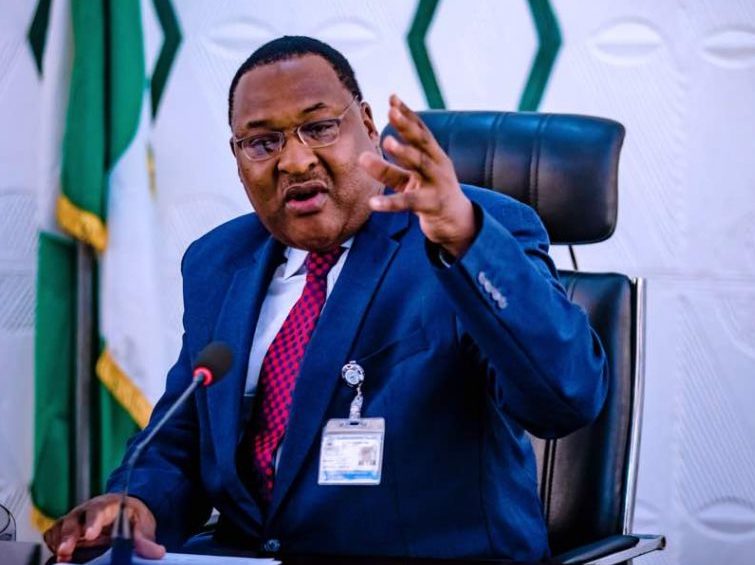
The Nigerian Shippers’ Council (NSC) has solicited the support of shippers and clearing agents to protest the planned imposition of new peak season surcharge (PSS) on Nigeria bound-cargoes by multinational shipping lines.
The 2020 peak period charges of between $1,000 and $1,500 per twenty-foot equivalent unit (TEU) by the line represent more than 400 percent increase from the previous $200 freight charge per TEU.
Speaking in Lagos on Wednesday during a meeting with members of the Organised Private Sector (OPS), Executive Secretary of NSC, Hassan Bello, said the council has written a protest letter to the lines demanding the withdrawal of the surcharge.
He also said that NSC has written to the Minister of Transportation, Rotimi Ameachi, and urged him to discuss this issue with both the Ministry of Trade and Ministry of Foreign Affairs.
“We want Nigerian government to lead the protest. We have also written to the Union of African Shippers Association. They were as shocked as we were and we are sure that the union has started work on it. The European Shippers Council has also been notified. We found out that it is not only Nigeria, but China has also made protest against this unjustified charge, and if we all come together, we will be able to achieve our aim,” Bello said.
Bello, who stated that Nigeria is not adverse to changes in pricing, said that international shipping lines used to impose PSS in the tune of $150 to $200 per container.
He said that the charges were not negotiated with the Nigerian government before imposition, which is one of the principles of fair international trade.
“The new surcharge, which is as much as $1,400 spike, has the ability to cripple a fragile economy like Nigeria. It is not transparent, not negotiated when Nigerian ports are already one of the costliest ports in the world. This means that the economy would be hugely affected when the country is still grappling with the effects of Covid-19 pandemic,” he said.
Bello noted that the new surcharge, if allowed, would have inflationary effect on the economy; and cargoes may not be cleared from the port because shippers would not be able to afford the added cost.
“It will mean job losses, drop in government revenue, chaos and congestion in the port, and many companies may be out of business,” he added.
Managing Director, Nigerian Ports Authority (NPA), Hadiza Bala Usman, expressed disappointment about the charges, saying that it might result to more cargoes being abandoned at the ports.
Usman, who was represented by NPA’s General Manager, Tariff and Billings, Abubakar Garba Umar, said, “If the importers are charged so high and they abandoned them in the port, NPA will lose revenue and it would reduce efficiency and turn around of ships to Nigerian port.”
Responding, representative of the Nigerian Association of Chamber of Commerce Industry Mines and Agriculture (NACCIMA), Mrs. Margret Orakwusi, pledged to support the NSC in its effort to protest the surcharge.
She said NACCIMA would also write a protest letter to the Ministry of Finance and the Central Bank of Nigeria (CBN) because many of their members borrowed money from banks, and repayment of such loans would be affected by thE additional cost.
Director General, Lagos Chamber of Commerce and Industry (LCCI), Muda Yusuf, who noted that the last thing Nigeria’s business climate needs is added cost, said that it is the ordinary Nigerians that would bear the cost through skyrocketing prices of goods in the market.
While pledging LCCI’s support to NSC, he stated that Nigeria needs to progress in the implementation of the Ease of Doing Business policy at the port, which also has cost implication on shippers.
Other groups represented at the meeting including the Manufacturers Association of Nigeria, Shippers Association of Lagos State, Association of Nigerian Licensed Customs Agents and National Association of Government Approved Freight Forwarders (NAGAFF), all promised to join the NSC protest.